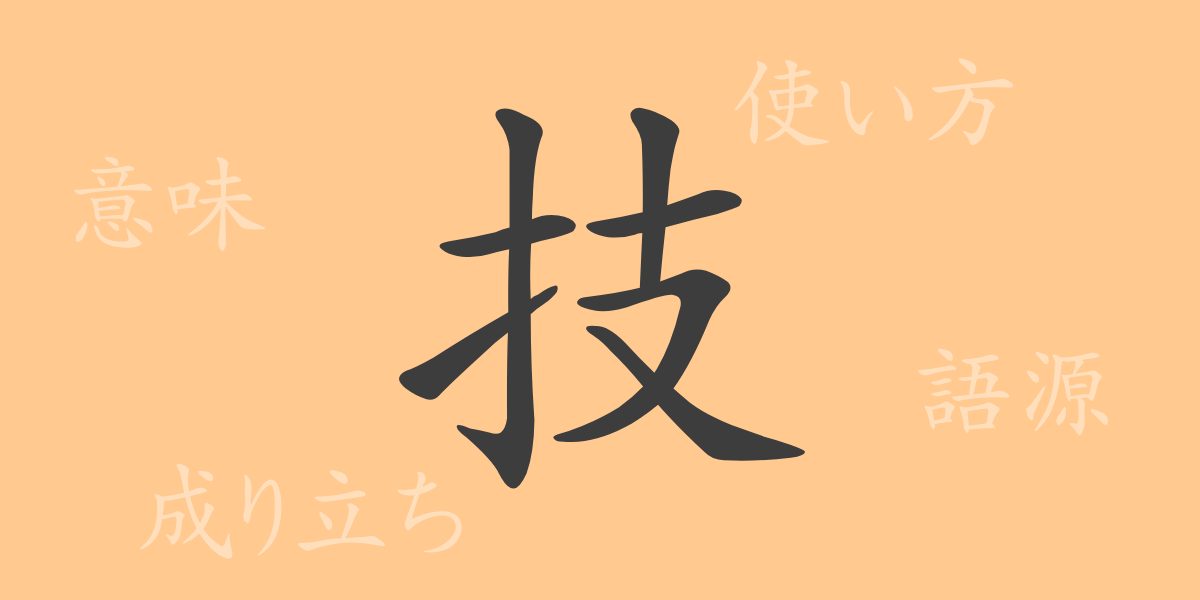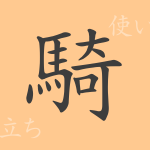The Japanese language contains numerous kanji, each with its own unique history and meaning. The character “技” (waza) is widely used, from everyday life to specialized fields, and is deeply rooted in our lives. This article explores the charm of “技” (waza), detailing its origins and modern usage examples.
Origin of the Kanji “技” (語源)
The kanji “技” (waza) began to be used in ancient China to represent skillful work or art done by hand. This character is composed of the “手” (te), meaning hand, and “支” (shi), which means to support or hold. Together, they signify the act of supporting something with the hands, essentially representing “hand techniques.” Over time, this character came to denote techniques and skills, retaining its meaning to this day.
Meaning and Usage of “技” (waza)
The kanji “技” (waza) generally refers to skilled abilities or techniques in specific fields. This includes skills learned through physical or mental practice, such as in sports, arts, and craftsmanship. Additionally, it can be used metaphorically to mean “dexterity” or “clever means.”
Reading, Stroke Count, and Radical of “技” (waza)
Understanding the readings and structure of the kanji “技” (waza) allows for a deeper grasp of its meaning.
- Reading: The on-yomi (Chinese reading) is “ギ” (gi), and the kun-yomi (Japanese reading) is “わざ” (waza).
- Stroke count: 7 strokes in total.
- Radical: The radical is “手” (てへん, tehen), meaning hand.
Idioms, Proverbs, and Expressions Using “技” (waza)
Here are some idioms, proverbs, and expressions that include “技” (waza).
- 技術 (ぎじゅつ, gijutsu) – Specialized skills or knowledge in a particular field.
- 技能 (ぎのう, ginou) – Skilled ability to perform a certain task.
- 手技 (しゅぎ, shugi) – Hand techniques or operations.
- 歌舞伎の技 (かぶきのわざ, kabuki no waza) – Unique acting techniques and skills used in Kabuki theater.
- 「技ありての命あり」 (waza arite no inochi ari) – A proverb meaning that having skills provides a way to live.
Summary on “技” (waza)
The kanji “技” (waza) holds meanings beyond just being a character and plays a significant role in our culture and daily life. Its usage is extensive, symbolizing our skills and techniques from daily activities to specialized fields. Through this article, we hope to help you understand the deep meanings and history embedded in “技” (waza) and to rediscover the beauty of the Japanese language.

























